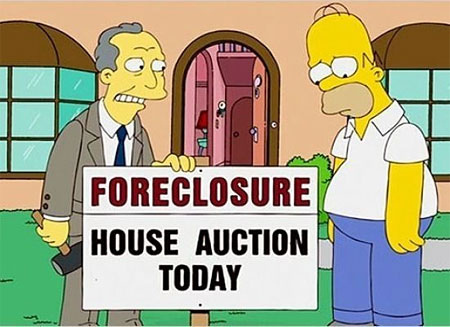As a real estate agent, one of the requests I get very often from clients who are seeking a good deal is “Hey, can you send me power of sale listings when the come on the market?”
For those of you not fully sure what the term “power of sale” means (and for the rest who have vague idea), I’ll briefly explain: Under typical circumstances the person(s) offering a home for sale to prospective purchasers are the home owners. When someone with a mortgage defaults on their payments, after serving notice and following a number of other strict criteria, the lender (institution or person who loaned the mortgage) earns the right to sell the property as a means of mitigating further loss, and recovering bad debt.
The consensus amongst the general public seems to be that power of sale properties are being liquidated and can be acquired for significantly less than a home down the road being sold more conventionally. Admittedly I think a lot of real estate sales people (not all) failing to explain what I am about to is in part to blame for the misconceptions.
In Ontario, when the financial institution (or lender of any kind) sells the property pursuant to power of sale, and do so for less than the mortgage amount, they have the right to sue the property owners for the difference. The reverse (THE IMPORTANT MESSAGE HERE) is also true: When a lender sells a property for less than fair market value, the owner of the property (the person(s) who stopped paying their mortgage) have the right to sue the lender for the difference – or in other words – the bank will not willingly sell the property for much less than fair market value for the risk of being sued.
The most common reason I see otherwise responsible people neglect to pay their mortgage is usually a result of devastating life circumstances such as sudden job loss, illness, divorce etc. Often, because of these circumstances, the properties being sold as power of sales are very neglected, show a lot of wear and tear, and lack the pride of ownership that a family home on the resale market usually does. Furthermore, the lender selling the property will do so on an “as is”, “where is” basis – which what you see is what you get! In a conventional sale, if a defect is revealed in the property, most sellers will be willing to negotiate some form of remedy whether it is repair or financial compensation. I have yet to see a lender selling under power of sale do so: Ultimately, the buyer has the choice to accept the property as is or not pursue it further if they find something that makes them uncomfortable.
I am not for a second saying that there aren’t deals out there in the power of sale market but what I am saying is that there are just as many deals out there in regular resale homes. For most of us, by the time we pay very close to fair market value, and then repair/upgrade an often neglected property, we are no further ahead (or are behind) than we would be if the purchase was a single family home down the road with full disclosure!
Before you dive head first into pursuit of a “deal”, be sure to sit down with your realtor, mortgage agent, lawyer, financial advisor, etc and carefully consider whether the purchase makes sense from all angles!
